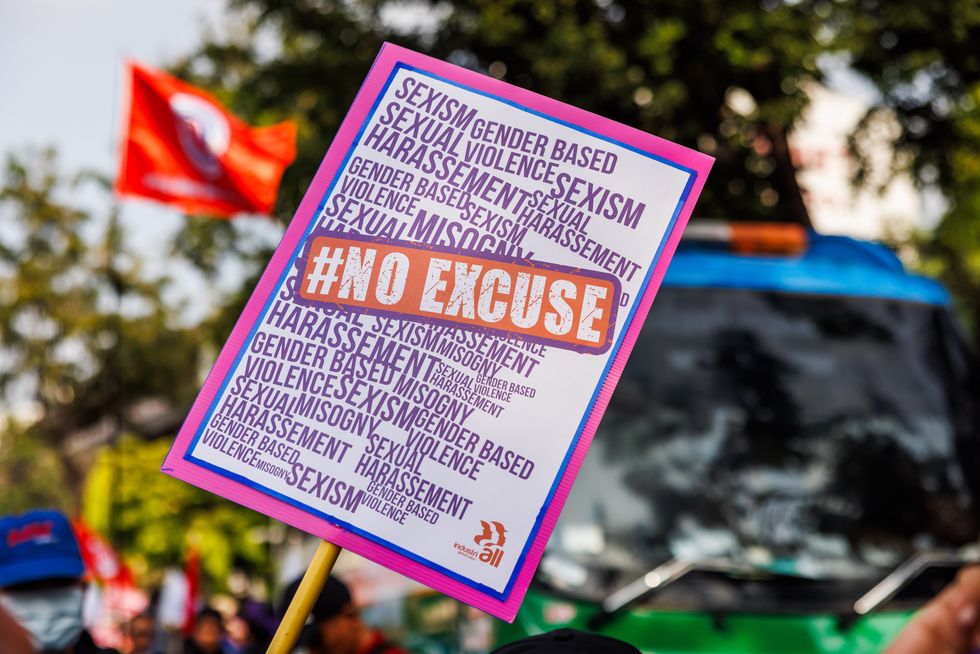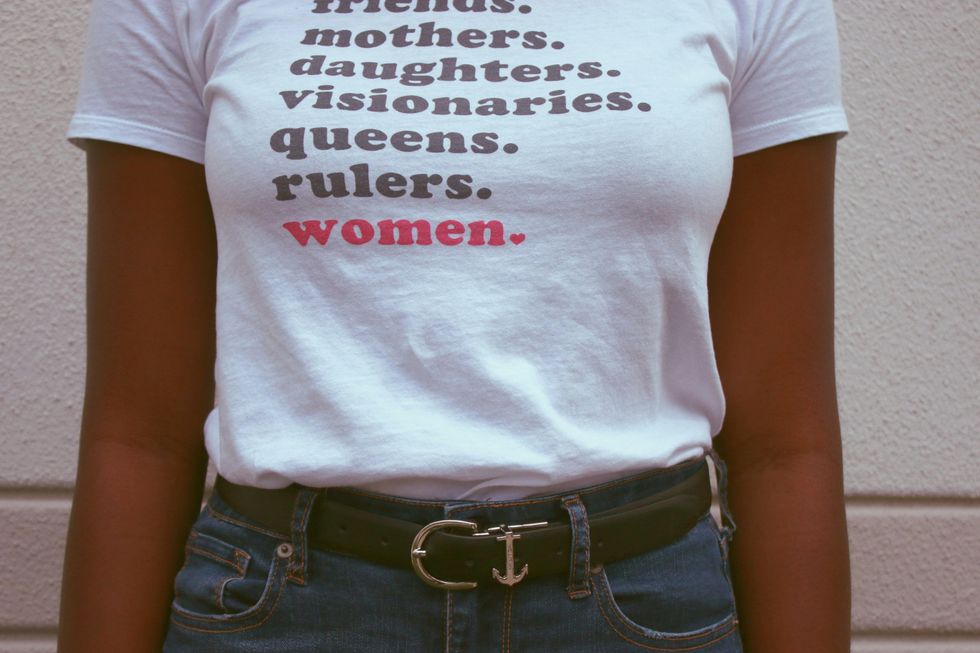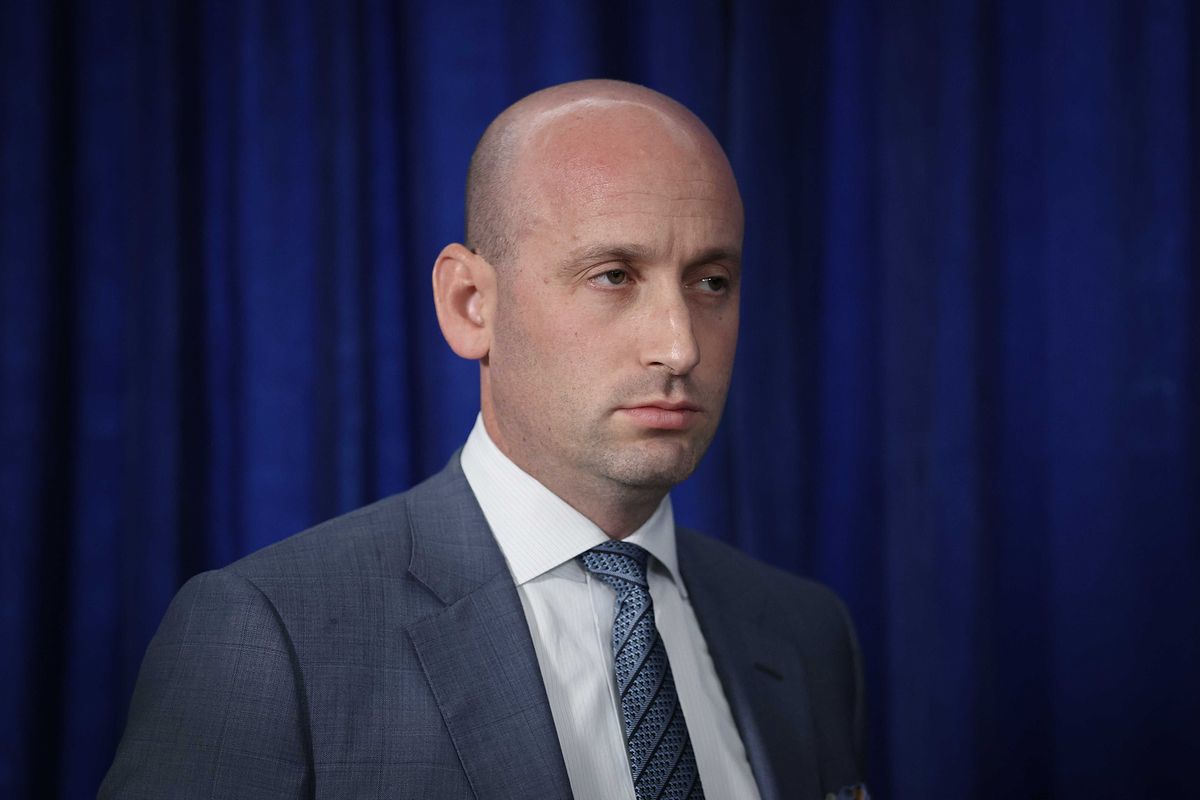International Women’s Day is fine, as days go.
Officially started by the UN in 1975, it has its roots in socialist-backed celebrations of women workers in the USA and European countries like Austria, Denmark and Germany.
On its own, it’s a pretty powerful occasion we can use to take stock of the contribution women make worldwide – but also their continued struggle for gender equality.
Unfortunately, the modern iteration of IWD seems to have morphed into a lot of talk and no action.
Big brands have commercialised the occasion with large events (panels… so many panels…) while the media uses it as a day to make loud noises about the need for change and then… do absolutely pim as soon as the clock strikes 12:01am on the 9 March.
Which can make one a little desensitised to the entire concept.

I’m just going to say it: as a woman, I don’t give two figs about the day. What is it doing for us in practical terms?
In fact, things seem to be going downhill. Some of the most pressing issues that affect women across the globe are only getting more urgent.
In the UK alone, sexual harassment cases are still occurring at sky high rates, despite mainstream discussion surrounding the topic; rape prosecutions have gone down, even though reporting of assault has increased; trans women are facing massive hostility from both the media and certain sectors of the feminist movement.
And the gender pay gap… well, as you can probably guess, it ain’t closing any time soon.
That’s just scratching the surface.
So here’s some problems women face on the 364 days a year that we don’t have the spotlight on us.
1. The gender pain gap
A fun new thing semi-discovered in recent years: the whole phenomenon about women not being believed? It extends to healthcare too.
Although hard to track because, as mentioned, it involves women’s concerns not being listened to or recorded, people have noticed worrying inequality when it comes to healthcare professionals listening to women. Journalist Dawn Foster dubs this the “gender pain gap”. She cites cases that range from women whose reports of pain were ignored, only to later be diagnosed with terminal illnesses that could have been treated if they were caught earlier, to a rash of women who weren’t listened to after their contraceptive implant caused massive health problems (including piercing their abdomens).
This pain bias also means women experience fun things like waiting longer in A&E and being given less effective medication. Cool!
2. Financial inequality
As mentioned, that pesky gender pay gap rears its head, with men in full-time employment earning an average salary 8.9 per cent higher than their women counterparts.
But the pay gap isn’t the only thing affecting our purses; women have a higher cost of living in general. It’s thanks to the far-too-prettily named “pink tax” which will see women paying around 42 per cent more on goods ranging from toiletries to clothing. According to one study, this adds up to roughly $1,300 (£996) a year. Value for money?
3. Body image
We’re really, really trying over here but it’s very hard to feel consistently good – or at least ‘OK’ – with the way we look when spending just 30 minutes scrolling on Instagram is enough to send a wrecking ball crashing through our self-esteem.
Young women in the UK apparently have some of the lowest self-esteem in the world. And with huge cuts to mental health services in the UK meaning even those with extremely urgent and visible mental illness can’t access help, how on earth are millions of women supposed to get support with an underlying malaise they experience daily?

4. Sexual harassment
Do you know about this yet? We do? Quick reminder: over half (OVER HALF!) of women in the UK have experienced sexual harassment at work.
One in five women have been sexually assaulted and 68 per cent of women say they’ve been sexually harassed in a public place. Do you get it now? Do you?
5. Sexism and bigotry
Brand new study sums this one up: 90 per cent of the world’s population is biased against women. The research – which looked at people from 75 countries – also found that over half over the UK population hold at least one sexist belief. One IWD a year is not enough to combat that. Then you’ve got the other forms of bigotry certain groups of women face, like rampant and prominent transphobia and anti-trans hate crime going up by 81 per cent in the last year.
Or racism experienced by black and brown women – last year a study revealed one in three employed adults have witnessed racism or been on the receiving end of it. Lord.
6. Online abuse
And we can’t even find solace from all this sh*t by peacefully scrolling our Twitter feeds. Being online is toxic for women. It’s not just female politicians who get harassed; it’s one in five women who have received threats of physical or sexual violence online. An Amnesty project found an abusive tweet is sent to a woman every 30 seconds.
But, hey, at least we have one day a year, right?
MORE: Women are sharing their stories of ridiculous men who can't do the simplest things and toxic masculinity is freaking out
MORE: British embassy tweets a picture of 8 white men to celebrate International Women's Day














